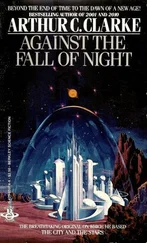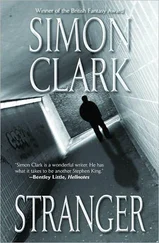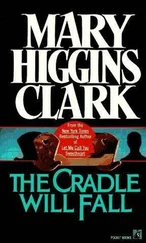Thomas enthused, ‘You know that Sir Horace Garston surveyed the area at the beginning of the century? He says that Roman engineers cut the amphitheatre out of the rock around the second century AD, but my belief is that it is actually far more ancient than that, and that the Romans merely utilised an existing geological feature in the land. They probably cleared it of plant growth and wind-blown soils, as you yourselves have done, then added their own timber seating. So my conjecture is that the Romans first occupied the area during the reign of the Emperor Nero. What do you say, Samuel?’
‘Sam, eh, call me Sam, please. Uhm…’ He found himself floundering. ‘Oh, excuse me; I haven’t offered you a drink.’
‘Oh, really, there’s no need; I—’
‘No problem. Tea, okay?’
‘Okay? I’m not familiar with the word “okay”. Is that a blend of tea?’
Again Sam realised that there were sufficient differences in the language to stir up a hell of a lot of confusion. ‘“Okay.” No, no. “Okay” is an American word; it’s a kind of verbal shorthand for “Is that all right with you?” You can also use it as a substitute for “Yes” or if you say “I’m okay” that means “I am well.”’
‘Oh,’ Thomas smiled. ‘Yes, thank you.’ The smile became a grin. ‘Then – okay, thank you, I will have a cup of tea.’
Ryan said, ‘Best use the galley on the bus. I’ll make it. Are you having one, too?’
Sam nodded. ‘Sure, thanks.’ He glanced back towards the amphitheatre. He didn’t want to delay joining the search for Nicole. Already his imagination was supplying unpleasant little scenarios that might account for her disappearance. ‘If you’ll just excuse me for a moment, I need to speak with a colleague.’
‘By all means.’
‘Ryan, if you can just look after Thomas for a little while? I won’t be long.’
‘No problem. I’ll make a start on the tea.’
Sam headed back to the amphitheatre. At the top of the steps he glanced back. Ryan had invited the Reverend Thomas Hather onto the coach.
Sam had hoped Ryan would have suggested to Thomas that he sit on a bench while Ryan brought the cup of tea out to him – although God alone knew what an 1860s man would make of styrofoam cups and tea from a foil sachet anyway. Now he could see that Thomas was taking a lively interest in the interior of the bus.
Sam went quickly down into the amphitheatre, feet thumping hard against the timber. Why is it , he asked himself, that I’m sure I’m going to have some very tricky questions to answer the next time I speak to the good Reverend?
ONE
When Sam Baker approached the bus on returning from the amphitheatre, he stopped and stared in disbelief.
Ryan Keith had played the role of host well. Too damn well, by far.
The bus was deserted apart from Ryan and the Reverend Thomas Hather. The latter sat in the front seat, sipping tea from a bright blue styrofoam cup while Ryan used his Oliver Hardy bowler to point at the TV mounted at the front of the bus.
Sam walked quickly across the car park and stepped through the bus doorway.
One glance took it all in.
Wide-eyed, the cup held frozen in mid-drink, the 1865 clergyman was staring at the TV. A TV that wouldn’t even be built in its crudest form by Baird until 1924, and wouldn’t exist in the form that the good Reverend was now watching for another hundred years or more.
‘What do you think?’ Ryan asked brightly, clearly oblivious to the difficulties he was creating.
In near-religious awe, Thomas gazed up at the screen. ‘All those snakes,’ he breathed in disbelief. ‘The man hates snakes and yet he finds himself in the tomb with thousands upon thousands of the creatures. What exquisite irony.’ The man shot Sam a look of pure excitement. ‘Poor Indie has all the woes of Job on his shoulders. To think… Oh, my gosh, look how he’s trying to climb out of reach of the snakes. Just look at the expression on his face: he’s quite simply terrified…’
The Reverend Thomas Hather’s first experience of 20 thCentury technology was a TV playing a video copy of an old Indiana Jones movie.
Later, Sam would admit to himself he was surprised by Thomas’s fast, almost instantaneous, acceptance of video and television. Sam would have expected a 19 thCentury man to be so startled by a box full of people and sounds that he’d have yelled something about it all being the Devil’s work, then fled for dear life. But Thomas took it in his stride. He didn’t really believe that there were actual people in the box; he had some grasp of the principles of electricity, even of the rudiments of animation, and told them about magic-lantern shows he himself had presented at the town hall.
After watching a few more minutes of television while swallowing the tea in sudden gulps so he wouldn’t miss any of the action, Thomas turned his attention to the bus itself.
‘You know, I’ve always thought this would be possible.’ Thomas spoke with the gushing enthusiasm of a child visiting a toy factory. ‘Just last month I visited my brother in Durham. I travelled on the new express locomotive; speeds reached by that machine have been recorded in excess of 75 miles per hour. That in itself is extraordinary, but why must locomotives be restricted to rails, I asked myself? Imagine the network of roads we have compared with the rail network! It occurred to me that lighter locomotives could be built to run on roads rather than rails. They would have to be far smaller and slower, of course, and something would have to be done to suppress the noise and smoke, otherwise all these Snorting Billies would frighten the horses. But can you imagine such machines running through our streets in towns, along roads into the countryside? Such road locomotives would obviate the need for laying costly steel rails from John O’Groats to Land’s End. Now, before I climbed on this omnibus I noticed a small door panel labelled “water”. Then I saw the gear levers and the wheel control. Straightaway I told myself that this vehicle is not horse-drawn but powered by steam. Am I right?’
The water inlet on the side of the bus, Sam knew, was where the toilet and kitchen galley tanks were refilled. But again he realised that to patronise this 19 thCentury Englishman would be a fool’s errand. ‘It’s a new process,’ Sam said.
‘Internal combustion,’ Ryan supplied, pleased to be contributing to the conversation.
‘Internal combustion? Is it… okay?’ The Reverend Thomas beamed with delight at being able to use his newly-learnt word.
Sam smiled and nodded. ‘It works very much okay.’ He then went on to give a thumbnail sketch of the workings of a diesel engine, even though Karl Friedrich Benz wouldn’t fire up the world’s first internal-combustion engine for another 20 years. As he talked he glanced out through the bus window to where Jud was leading two dozen men and women into the wood to search for Nicole. He knew he should be with them. But Thomas’s arrival was developing into a knotty problem of Gordian proportions. There was no question of giving him the bum’s rush and simply saying, ‘I’ve work to do, so I’ll be seeing you,’ and waving him goodbye as he cycled away. The man’s quick eye was noticing more and more – whether it was technology (he’d spotted a camcorder left on a seat) or fashions (there was a Gola tracksuit in glossy nylon draped over the back of the driver’s seat). He’d even seen a jigger of UHT milk on the floor, picked it up and was examining it with an acute air of concentration.
Sam quickly realised that, short of keeping the man locked up in the visitors’ centre (a morgue and now a jail?), he’d have to do some pretty nifty explaining. And the bottom line was that the explanation might have to be the truth, the whole truth and nothing but the truth.
Читать дальше












